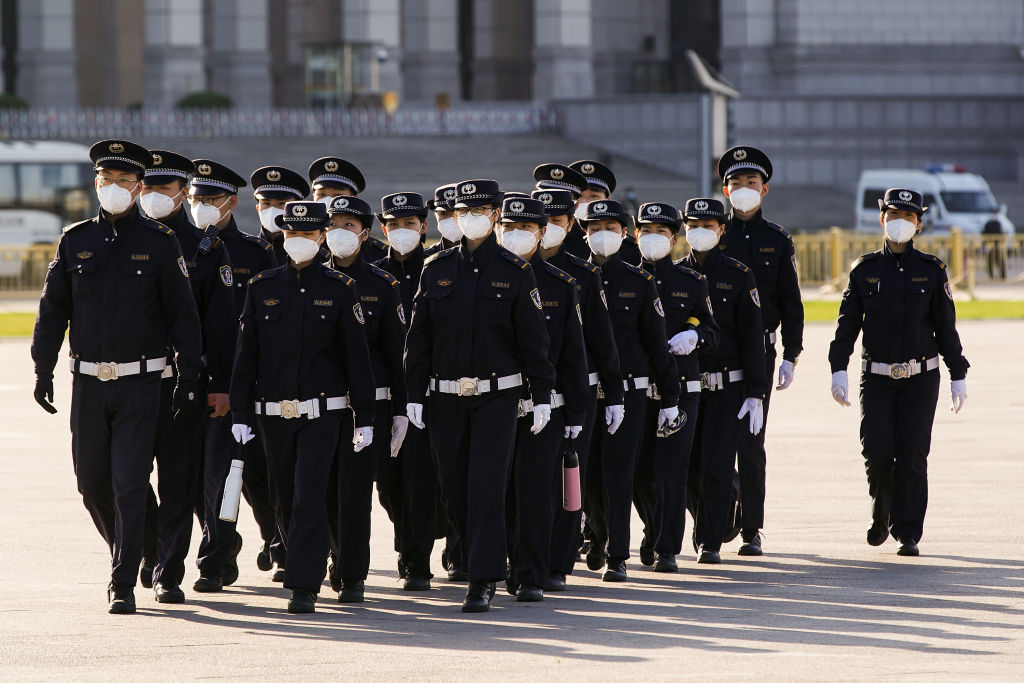As the world wages war on coronavirus, China is in full propaganda mode. Its foreign ministry spokesman Zhao Lijian has claimed the US military might have brought Covid-19 to Wuhan, a lie parroted by several embassy Twitter accounts. It has also sent doctors and medical supplies to Europe and to the United States. Never one to let a good crisis go to waste, China’s leader Xi Jinping has reportedly suggested that the aid Beijing has provided could form the basis of a ‘health silk road’ connecting Europe to China.
But make no mistake: China’s activities are designed to distract from its own culpability. Through its actions and its words, Beijing is seeking to convince the world that Covid-19 did not originate in China, and that the world should be grateful for all that China is doing to halt the spread of the virus. These narratives had some initial success, although this is largely because of what the West did wrong, rather than because of anything China did right.
Nowhere is this clearer than in Italy. In early March, Beijing sent masks, respirators and specialist doctors to Italy. This came at a time when the European Union and its members were largely ignoring Rome’s calls for help. China’s efforts earnt it predictable plaudits from the Italian government, which includes populists with a predictably pro-authoritarian streak. Following weeks of inaction, the EU Commission has now begun to counter the Chinese Communist party’s propaganda by stressing, for example, that France and Germany combined have donated more masks to Italy than China.
There are few signs – at the moment – that anybody within mainstream UK politics has fallen for what David Patrikarakos has called China’s ‘masked diplomacy‘. But anyone who doubts the impact that the CCP’s propaganda has had on the UK should read the publicly-available minutes from the meetings of the New and Emerging Respiratory Virus Threats Advisory Group (Nervtag).
Nervtag acts as an advisory group to the chief medical officer. It was first convened at the request of the Department of Health and Social Care on 13 January 2020. The Department relied on Nervtag to make changes to public health advice and equipment guidance for the NHS. Nervtag was thus central to the UK’s response to Covid-19 – and reading the minutes from its meetings shows, in excruciating detail, how the UK’s initial response was hampered by Beijing’s lies.
When Nervtag met for the first time, the World Health Organisation (WHO) was reporting, based on data supplied to it by China, that there were no cases of medics contracting Covid-19; there had been only 41 cases of Covid-19 between 8 December 2019 and 2 January 2020; and, there had been no additional cases since 3 January 2020. All of this was untrue, and the CCP had already begun to persecute anyone who dared to speak the truth. But Nervtag concluded ‘based on current available information’ that the risk to the UK population was ‘Very Low’.
Nervtag next met on 21 January. At the time, the WHO said – again, based on Chinese data – it was not possible to determine for certain if a feature of Covid-19 was ‘self-sustaining human transmission’ (i.e., human-to-human transmission). This was the case and – by this stage – surely well known in China. As early as the second week of December 2019, doctors in Wuhan had reported cases that indicated human-to-human transmission. But Nervtag did not know this, and only moved its threat-assessment to ‘Low‘.
On 28 January, when Nervtag next met, the situation was bleaker. The Group recognised – following a WHO Emergency Committee meeting – that human-to-human transmission was occurring. Even at this stage, however, Nervtag commented that ‘a large amount of data’ supplied by China was inadequate or incomplete. Two days later, the WHO declared an international emergency. And on 31 January, the first two cases of Covid-19 were confirmed in the UK.
It is, of course, unclear whether the UK would have acted differently had it had access to all the available information. Perhaps ‘herd immunity’ would not have been trialled, but perhaps it would. We may have gone into isolation sooner, began social distancing faster, or had additional measures and precautions imposed upon us. But it is clear that China’s obfuscations, which were repeated by the WHO, lulled the UK – and other countries – into a false position.
China’s behaviour is taken from the authoritarian playbook. The CCP sought to conceal bad news from its own citizens, and then to conceal bad news from the outside world. In doing so, as a recent Henry Jackson Society report makes clear, Beijing breached its obligations under the International Health Regulations to share – in full – data relating to emerging diseases. This undoubtedly led to deaths outside of China’s borders, perhaps within the UK’s.
Like other authoritarian states, China abides by its international obligations when it believes it is in its interests to do so, and ignores them when it is not. When all of this is over, China will have questions to answer – but we should not expect straight answers.
Dr Andrew Foxall is Director of Research at the Henry Jackson Society, the international affairs think tank.






Comments